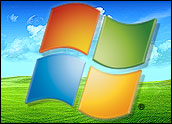
Although it is not officially scheduled to be released until 2010, Microsoft is starting to talk up Windows 7, its next OS.
To that end, it has started a blog hosted by the two senior engineering managers for the Windows 7 product, Jon DeVaan and Steven Sinofsky, and is promising to release in-depth technical specs in October, first at the Professional Developers Conference and then at the Windows Hardware Engineering Conference.
DeVaan and Sinofsky demonstrate that Microsoft has learned from the Vista experience.
“We, as a team, definitely learned some lessons about ‘disclosure’ and how we can all too easily get ahead of ourselves in talking about features before our understanding of them is solid. Related to disclosure is the idea of how we make sure not to set expectations around the release that end up disappointing you — features that don’t make it, claims that don’t stick, or support we don’t provide,” they wrote.
Ghost of Vista
Overpromising on features, which were later discarded or abandoned, was a major complaint about Vista — though it was hardly the only one. When that much-awaited OS was released, it had a number of problems with it, to say the least.
Vista required significant investments in additional hardware to run smoothly and took up more system resources than many corporate IT shops had anticipated.
Windows 7 should address the remaining tech issues with Vista, Rob Helm, director of research at Directions on Microsoft, an independent consulting firm, told TechNewsWorld.
“The worst problems with Vista had to do with hardware performance and capability,” he said. Those are being resolved or will be resolved over the next two to three years, he added. “By the time Windows gets out of the door, the hardware universe will have caught up with the demands that Vista places on it,” he said.
Incremental Improvements
Windows 7 is also not the ambitious undertaking that Vista was, which bodes well for a smoother roll-out. “It is pretty clear it is supposed to be an incremental improvement to Windows Vista,” Helm said.
Areas that Microsoft has said it will improve in Windows 7 include graphics performance, power management and APIs (application programming interfaces) for developers.
The biggest change, which has been demoed, will be the introduction of touch computing — a feature that ironically may pass many users by unless they have upgraded their PCs. Nonetheless, Helm said, Microsoft clearly hopes Windows 7 will be able to deliver what people had originally expected from Vista.




















































After screwing us with Vista, What makes them think our company would ever trust them again. A year ago everything in this office was HP, as we replace equipment it is no longer HP.Instead of customer friendly it is a customer NIGHTMARE. More time is wated trying to figure out solutions instead of having quality production time.Instead of saving us time it is a waste of time. I hope some company comes out with a truly customer friendly operating system that is geared toward the normal person.
I bought a Mac in 2001. I wanted to learn a new operating system and a new computer. Well, I got one new computer but two new operating systems, 9.2.2, and X.0. Well, it worked out. It was a hobby thing, then one day when spending hours locking down and protecting a Windoz PC, I GOT IT!
As time went on, we replaced Windoz boxes with Macs, and then different Unix and Linux versions.
There is NOTHING in an office setting that cannot be done equally as well on a Mac as on a PC.
BUT, old Windoz boxes can be converted to *nix, and not lose a thing! Even Open Office works just fine for the support staff, and most execs.
If opening a new company, the Mac makes the most sense. If migrating off Windoz, *nix works well and allows the use of legacy hardware.
Why in the world does ANYONE stick with difficult to maintain, and EXPENSIVE TO MAINTAIN Windoz? It just doesn’t make sense, and really doesn’t make economic sense.
I spend maybe — MAYBE — two hours a month on the OS X machines. I spend a bit more on the *nix boxes, but that is likely because I AM just not totally up to speed there, since I was last a Unix user in the 80s. But the one legacy Windoz box takes more time in a week than those machines do in a month.
I would LOVE to kill the machine, but sometimes something needs testing… If everyone else would abandon Windoz, so could I.